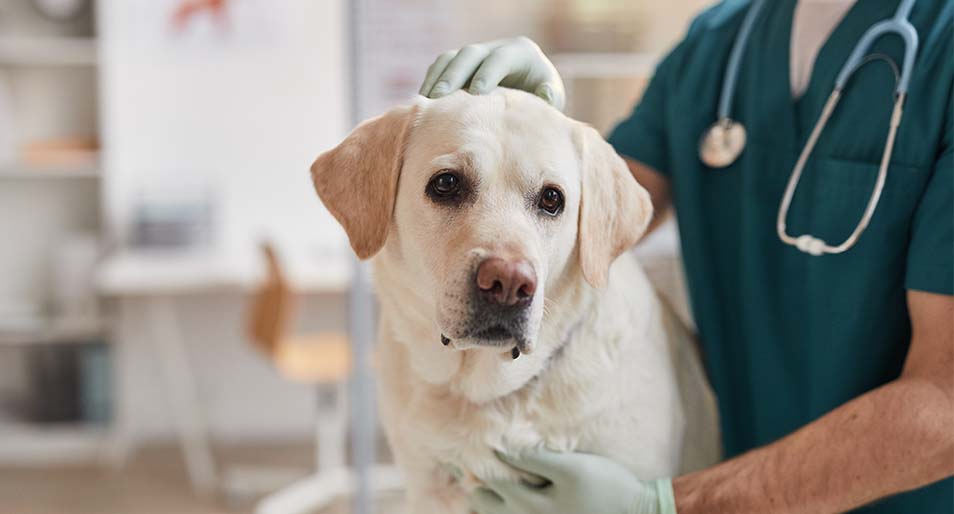PET HEALTH
Dog Vaccinations Cost: What You Should Know
Pet vaccines are highly recommended for your dog to help protect them from viruses, bacteria, and other diseases that can pose major health issues. You could pay between $250 and $505 for dog vaccinations in their first year — but typically less than that each year after.1
Here’s everything you need to know about how much dog vaccinations cost, what vaccines your dog needs, and how often they need them so you can plan for the costs.
MetLife Pet’s Preventive Care Add-on May Help With Vaccine Costs
The Cost of Dog Vaccinations
The cost of dog vaccines can vary depending on where you live, the doses required, and the type of veterinarian’s office or clinic you go to.
Here’s what you can expect for some of the most common dog vaccination costs:1
Dog Vaccine |
Potential Cost |
DAPP/DHPP |
$20 – $60 (per dose) |
Rabies |
$20 – $30 (annually) |
Leptospirosis |
$20 – $30 (per dose) |
Bordetella |
$30 – $50 (annually) |
Canine influenza |
$45 – $65 (per dose) |
Lyme disease |
$20 – $40 (per dose) |
What Vaccines Does My Dog Need?
“Core” vaccines are vaccinations that vets consider essential for all dogs — unless there’s a medical reason not to get them. “Non-core” vaccines are recommended based on certain risk factors, like your dog’s lifestyle and location.2
The specific vaccines your dog needs will depend on where you live, their previous medical history, and their age. If you’re adopting a dog, check with the shelter, breeder, or previous owner to see which vaccinations they’ve already had so you can bring this information to your vet.
Below are the core vaccines your dog is likely to get:
DAPP/DHPP
The DAPP (or DHPP) vaccine helps protect against some highly contagious and potentially fatal diseases for young dogs, including canine distemper, parvovirus (parvo), adenovirus, and parainfluenza.1
Puppies less than 16 weeks old get three doses of this vaccine, 2 – 4 weeks apart, while puppies older than 16 weeks get two doses 2 – 4 weeks apart. Dogs then get a single dose one year after their initial vaccine series and 3-year booster shots after that.2
Rabies
Rabies is generally fatal if your dog comes into contact with it — most often from a bite by an infected stray dog, feral cat, or wild animal. The rabies vaccine is recommended for dogs between 14 and 16 weeks old and annually after that, depending on your state laws.3
Leptospirosis
The leptospirosis (lepto) vaccine helps protect your dog from leptospira, a bacteria that causes kidney and liver damage and can be fatal in some cases. Dogs can become infected by drinking from puddles or other still water contaminated by the urine of an infected animal.1,3
The initial vaccine series consists of two doses 2 – 4 weeks apart. This is followed by a single dose one year later and annual boosters after that. It’s advised that puppies don’t receive their first dose until they’re 12 weeks or older.2
Many vets recommend the lepto vaccine as part of the core group because the infection is becoming more widespread, but it’s technically considered a non-core vaccine.2
What Non-Core Vaccines Should I Consider for My Dog?
Your vet can advise you on additional “non-core” vaccines that may be beneficial for your pup. Common optional vaccines include:
Bordetella
The bordetella vaccine protects your dog from bordetella bronchiseptica, a bacteria that causes upper respiratory inflammation. This leads to harsh coughing and illnesses like kennel cough.1,3
Dogs who are boarded or attend doggie daycare can benefit from this vaccine, and it’s not uncommon for these facilities to require it. At-risk dogs get one initial dose — typically intranasally or orally — and annual boosters.2
Canine Influenza
The canine influenza vaccine targets both strains of canine flu — H3N8 and H3N2.1 Similar to bordetella, canine influenza can cause kennel cough.1,3
Vets recommend this vaccine in two doses, 2 – 4 weeks apart, followed by one dose a year after the initial series and annual boosters.2
Lyme Disease
A Lyme disease vaccination protects your dog from a bacterial infection transmitted by deer ticks. This infection can cause kidney failure as well as cardiac and neurological problems.4
Dogs get two doses of this vaccine, 2 – 4 weeks apart, followed by a single dose one year after the initial vaccine series and annual booster shots.2 Along with vaccinating your dog, monthly flea and tick preventatives can help defend against Lyme disease.
Low-Cost Dog Vaccinations
If you want to stay on top of your pup’s health and wellness but are concerned about the cost, knowing how to get low-cost vaccines for dogs can be helpful. Let’s take a look at some tips:
- Plan vaccinations ahead of time: Vaccines may be less expensive when they’re part of a vaccination package. Schedule all of your dog’s necessary vaccinations in advance to potentially lower the overall cost.
- Look for vaccination clinics: Sometimes, volunteer vets or local pet stores host pop-up vaccination clinics to offer lower-cost vaccines. Additionally, some vet clinics provide budget-friendly care and can provide your dog’s essential vaccines at reduced rates.
- Check out veterinary colleges: Visiting a vet college may be a way to get your dog the vaccinations they need without breaking the bank. That’s because it’s often students (supervised by professionals) performing them at their school.
Consider dog insurance
A dog insurance policy with MetLife Pet can help cover the cost of dog vaccinations and other veterinary care. Our optional Preventive Care plan can reimburse you for vaccination costs — up to your annual limit — as well as other preventive care expenses, like heartworm, flea, and tick prevention.5,6
MetLife Pet Insurance Preventive Care Plans Can Help You Save on Dog Vaccinations
Vaccines are part of standard pet care, and they’re a great line of defense against potentially fatal viruses and infections.
Ensuring your pup’s vaccinations are up to date can help you make sure that they’re protected. And a MetLife Pet policy with optional Preventive Care can ease the financial burden of dog vaccination costs, other routine care expenses, and unexpected health issues. Get your free quote today.
We Can Help Protect Your Pup
Dr. Hunter Finn has been paid by MetLife to discuss the importance of choosing pet insurance. He is an integrative veterinary expert first, and social media star second. America’s favorite veterinarian owns Pet Method in McKinney, Texas, where he cares for pets while prioritizing their emotional well-being. When he’s not at his clinic, he’s starring in viral videos on TikTok (2 million followers) and Instagram (500K followers) — where he’s been known to snuggle puppies and conquer the latest dance trends.



